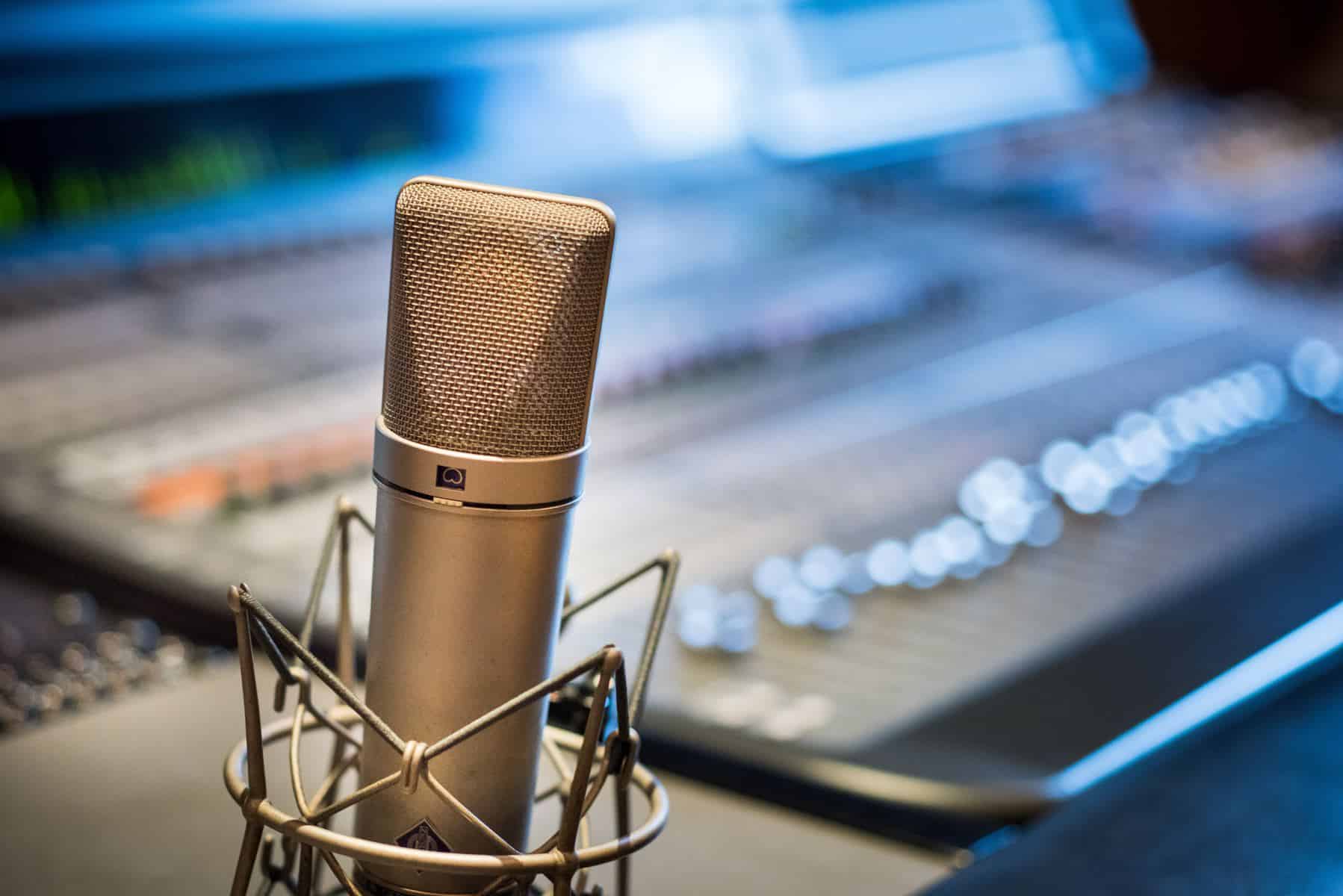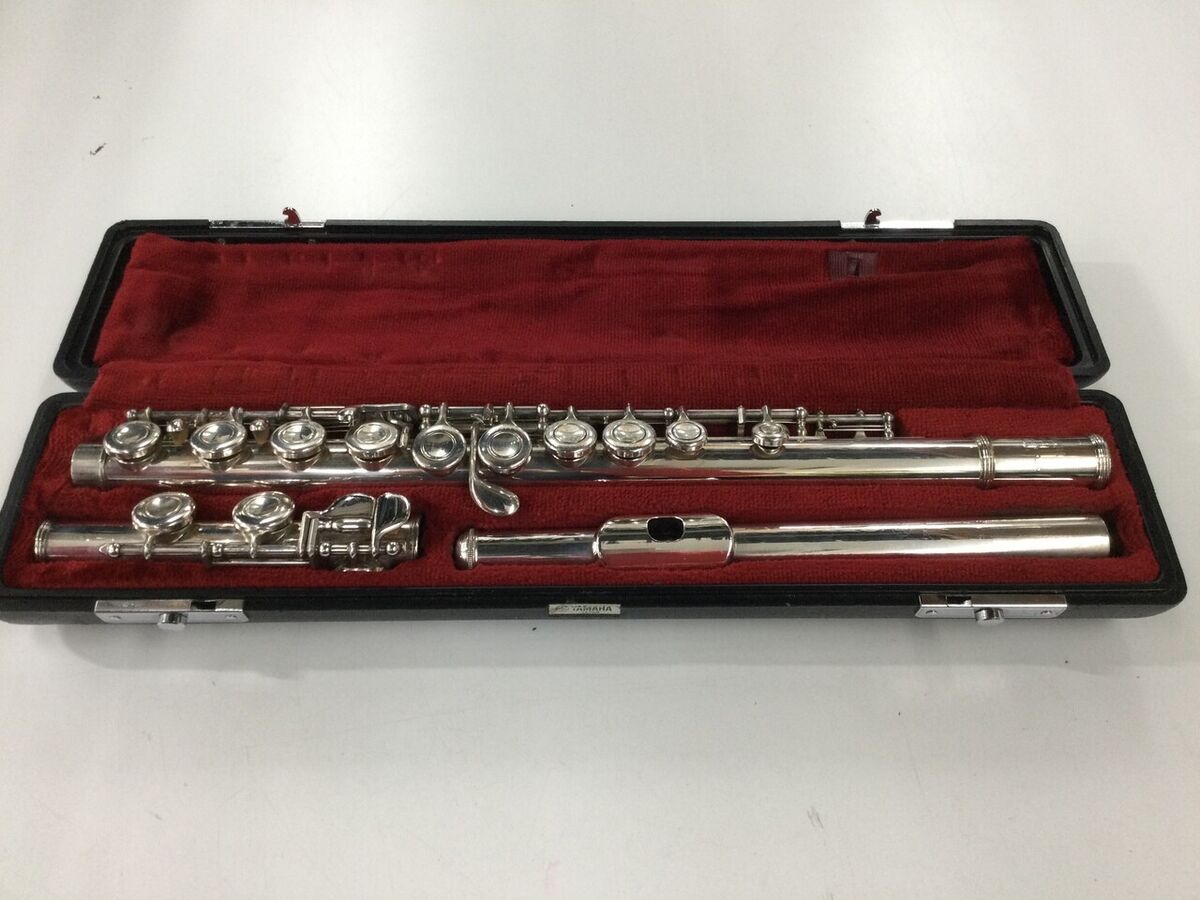Home>Devices & Equipment>Radio>How Much Does It Cost To Own A Radio Station


Radio
How Much Does It Cost To Own A Radio Station
Published: November 21, 2023
Discover the cost of owning a radio station and start your broadcasting journey with this comprehensive guide. Explore expenses, equipment, and licensing requirements today!
(Many of the links in this article redirect to a specific reviewed product. Your purchase of these products through affiliate links helps to generate commission for AudioLover.com, at no extra cost. Learn more)
Table of Contents
Introduction
Radio stations have long been a pillar of the media landscape, providing news, entertainment, and music to communities around the world. Owning a radio station can be an exciting venture for those with a passion for broadcasting and a desire to connect with audiences on a local or global scale.
However, before delving into the world of radio station ownership, it is important to understand the financial considerations that come with it. Establishing and operating a radio station involves various costs that need to be taken into account to ensure its success.
In this article, we will explore the different expenses associated with owning a radio station. From licensing and regulatory fees to equipment and staffing costs, we will provide valuable insights to help aspiring station owners plan and budget accordingly.
It’s important to note that the costs outlined here will vary depending on various factors such as the size and location of the station, the type of programming, and the intended target audience. However, this article aims to give a general overview of the expenses involved in owning a radio station.
Whether you dream of launching a community radio station or an internet radio station, understanding the financial commitment required will help you make informed decisions and set realistic expectations.
Now, let’s dive into the different costs associated with owning a radio station.
Licensing and Regulatory Fees
One of the primary expenses when it comes to owning a radio station is the licensing and regulatory fees. These fees ensure that your station is operating legally and in compliance with the regulations set forth by the governing authorities.
The cost of the licensing and regulatory fees will vary depending on the country and jurisdiction in which the station is located. In some cases, there may be initial application fees and annual renewal fees that need to be paid to maintain the station’s license.
For example, in the United States, the Federal Communications Commission (FCC) is responsible for regulating and licensing radio stations. The fees associated with FCC licensing can range from a few hundred dollars to several thousand dollars, depending on factors such as the station’s power output, coverage area, and frequency allocation.
In addition to FCC fees, there may also be state and local licensing fees that need to be considered. These fees can vary widely depending on the jurisdiction.
It’s important to do thorough research and consult with experts in radio broadcasting regulations to ensure that you have a clear understanding of the licensing and regulatory fees you will be required to pay.
Furthermore, it’s essential to allocate funds for the services of a legal professional who specializes in media and broadcasting law. They can guide you through the licensing process and help ensure that your station is in compliance with all necessary regulations.
Overall, licensing and regulatory fees are an integral part of owning a radio station and should be factored into the initial capital investment and ongoing operational costs.
Equipment and Studio Setup Costs
When it comes to owning a radio station, investing in the necessary equipment and setting up a well-equipped studio is crucial. The cost of equipment and studio setup will depend on various factors, including the size and scope of your station.
First and foremost, you will need to invest in audio equipment such as microphones, headphones, audio mixers, sound processors, and audio recorders. The quality and number of these components will depend on the level of professionalism and production values you wish to achieve.
Additionally, a radio station requires broadcast equipment, including transmitters, antennas, and broadcasting software. These are essential for transmitting your signal and ensuring optimal coverage and reception for your listeners.
Studio setup costs also include acoustic treatments, furniture, and other amenities necessary for a comfortable working environment for hosts, DJs, and other staff members. This may include studio desks, chairs, computer systems, monitors, and audio playback systems.
The cost of equipment and studio setup can vary significantly depending on whether you choose to purchase new or used equipment, the brand and quality of the gear, and the size and complexity of your station.
It is crucial to invest in high-quality equipment to ensure a professional and reliable broadcast. The cost can range from several thousand to tens of thousands of dollars, depending on your specific requirements.
To help manage these costs, consider reaching out to equipment manufacturers or suppliers to inquire about bulk purchase discounts or financing options. Additionally, exploring the used equipment market can be a cost-effective alternative for acquiring reliable gear.
Ultimately, investing in the right equipment and setting up a well-designed studio is essential for delivering high-quality broadcasts and providing an exceptional experience for your audience.
Staffing and Salaries
Running a radio station requires a dedicated team of professionals to handle various aspects of operations, programming, and production. Staffing and salaries are essential considerations when determining the overall cost of owning and operating a radio station.
The size and structure of your station will determine the number of staff members you’ll need. This can range from a small team consisting of a station manager, DJs, and support staff to a larger operation with additional roles such as producers, engineers, sales and marketing personnel, and administrative staff.
When budgeting for staffing and salaries, consider factors such as experience and qualifications, market rates, and the overall size of your operation. Experienced radio professionals, particularly well-known DJs or industry experts, may demand higher salaries, while entry-level positions may have more modest compensation.
It is also important to account for benefits such as health insurance, retirement plans, vacation time, and potential bonuses or incentives. Providing these benefits can help attract and retain talented individuals and ensure a motivated and dedicated team.
Keep in mind that staffing costs are ongoing expenses that need to be factored into your budget. Additionally, consider the potential for employee turnover and the associated costs of hiring and training new staff members.
To manage staffing costs effectively, consider outsourcing certain functions or exploring part-time or contract-based employment options when appropriate. This can provide flexibility while still maintaining the necessary skills and expertise within your team.
Ultimately, having a knowledgeable, reliable, and passionate team is crucial for the success of your radio station. Allocating a realistic budget for staffing and salaries is essential to ensure that you attract and retain top talent who will help drive your station forward.
Programming and Content Costs
The quality and diversity of programming and content are vital for attracting and retaining listeners. As a radio station owner, you’ll need to allocate a budget for programming and content costs, which can vary depending on the type of station and the content you aim to provide.
One option is to develop and produce your own original programming, which may involve hiring producers, hosts, and writers. This allows for full creative control and the ability to tailor the content to your station’s target audience and brand. However, producing original programming can be costly, requiring investment in talent, production facilities, and equipment.
Another approach is to license programs or syndicated content from external sources. Radio syndication networks offer a wide range of content, including talk shows, music programs, and news broadcasts. Licensing fees vary depending on the popularity and demand for the content, as well as the duration of the license agreement.
In addition to programming costs, consider budgeting for content creation, such as producing station promos, advertisements, jingles, and imaging. These elements help create a cohesive and professional on-air brand identity.
Furthermore, consider allocating funds for music licensing. Depending on the country you operate in, you may need to obtain licenses from performance rights organizations to legally broadcast copyrighted music. The cost of these licenses can vary depending on factors such as your station’s coverage area and the volume of music aired.
It’s important to strike a balance between quality, diversity, and cost when it comes to programming and content. Conduct market research to understand the preferences and interests of your target audience, and invest in content that aligns with those preferences.
Lastly, keep in mind that programming and content costs are ongoing expenses. Regularly reviewing your programming strategy and investing in new and engaging content is key to keep your audience engaged and attract new listeners.
By allocating a budget for programming and content costs, you can ensure a compelling and engaging radio experience for your audience, driving the success and growth of your station.
Marketing and Promotion Expenses
Marketing and promotion are essential for creating awareness and attracting listeners to your radio station. Allocating a budget for marketing and promotion expenses is crucial to help your station gain visibility and build a loyal audience base.
There are various avenues you can explore to promote your radio station. Traditional advertising channels, such as print media, billboards, and TV or radio commercials, may incur significant costs but can reach a wide audience. Consider partnering with local businesses and community organizations to cross-promote your station and leverage their networks.
Investing in online marketing is another effective strategy. Develop a visually appealing and user-friendly website for your station, optimized for search engines. Use social media platforms to engage with your audience, share updates, and create a buzz around your programming. Consider running targeted online advertising campaigns to reach specific demographics.
Events and promotions can also help generate excitement and attract listeners. Hosting contests, giveaways, or live broadcasts from local events can generate buzz and increase your station’s visibility. It’s important to plan for expenses such as event rentals, promotional materials, and any prizes or giveaways.
Another valuable marketing strategy is forming partnerships and collaborations. Consider joining forces with local businesses or community organizations to co-create content, sponsor events, or offer exclusive promotions. This not only expands your reach but also fosters goodwill within the community.
Moreover, allocate a portion of your marketing budget to market research. Understanding your target audience, their preferences, and listening habits can inform your programming decisions and help you tailor your promotional efforts effectively.
Regularly reviewing and adjusting your marketing strategies is key to staying relevant and maintaining a strong listener base. Monitor the effectiveness of your marketing campaigns and make data-driven decisions to optimize your marketing spend.
While marketing and promotion expenses can vary depending on your target market and the scale of your efforts, it’s important to allocate sufficient resources to build your station’s brand and audience. A well-executed marketing strategy can contribute significantly to the success and growth of your radio station.
Broadcasting and Transmission Costs
As a radio station owner, one of the significant expenses you’ll encounter is related to broadcasting and transmission. These costs are associated with the actual process of transmitting your signal to reach your audience.
The cost of broadcasting and transmission largely depends on the type of radio station you operate. Traditional terrestrial stations rely on radio towers and transmitters to broadcast signals over the airwaves. The expenses incurred in this approach include the purchase or lease of tower space, antenna installation and maintenance, and equipment for transmission.
Internet radio stations, on the other hand, have transmission costs associated with streaming their broadcasts over the Internet. This includes expenses related to bandwidth usage, content delivery networks (CDNs), streaming server hosting, and software or services to ensure smooth and reliable streaming to listeners.
Both terrestrial and internet-based stations may also need to consider additional costs related to licensing and compliance. Terrestrial stations need to comply with regulatory requirements, such as power output restrictions, antenna height limitations, and frequency coordination, which may involve consulting fees and equipment upgrades to meet those standards.
For internet radio stations, music licensing fees may be necessary to legally stream copyrighted music. These fees can vary depending on factors such as your station’s audience size, the number of tracks played, and the performance rights organization you work with.
In addition to these ongoing broadcasting and transmission costs, it’s important to allocate funds for periodic maintenance, repairs, and upgrades. Over time, equipment may require replacement or upgrades to ensure optimal signal quality and reach for your audience.
When budgeting for broadcasting and transmission costs, consider consulting with experts or professionals who specialize in radio engineering. They can assess your specific requirements and provide guidance on the equipment and technologies needed for reliable transmission.
Understanding and planning for broadcasting and transmission costs is crucial to ensure seamless and uninterrupted broadcasts, whether through traditional terrestrial radio or internet streaming. These costs are an integral part of running a radio station and should be factored into your overall budgeting and financial planning.
Maintenance and Upkeep Costs
Just like any other equipment or infrastructure, radio stations require regular maintenance and upkeep to ensure smooth operations and optimal performance. Allocating a budget for maintenance is essential to keep your station running efficiently and avoid costly breakdowns or interruptions.
Maintenance costs can encompass various aspects of your radio station, including equipment, facilities, and software. This includes routine maintenance, repairs, and upgrades.
For equipment maintenance, consider scheduling regular inspections and servicing for your broadcast and audio equipment. This may involve contracting with specialists or technicians who can identify and address any issues to maintain optimal performance. Additionally, budget for occasional repairs or replacements of equipment that may deteriorate over time.
Facility maintenance is also crucial. This includes upkeep of your studio space, transmission towers (for terrestrial stations), and any other physical infrastructure. Regular inspections, cleaning, and repairs are necessary to ensure safety and functionality.
Software and technology updates should also be taken into account. Broadcasting software, automation systems, and other digital tools may require periodic upgrades to leverage new features, optimize efficiency, and maintain compatibility with evolving technology standards.
It’s advisable to create a maintenance schedule and budget for routine preventive maintenance to catch potential issues before they become major problems. This proactive approach can help minimize downtime and the need for emergency repairs, ultimately saving you money in the long run.
When determining maintenance and upkeep costs, it’s important to consider the size and complexity of your station. Larger operations and more intricate infrastructures may incur higher expenses compared to smaller, simpler setups.
It’s also worth exploring maintenance contracts or service agreements with equipment manufacturers or reputable service providers. Such agreements often provide ongoing maintenance support and may include discounted rates for repairs or replacement parts.
By accounting for maintenance and upkeep costs in your budget, you can ensure the longevity and reliability of your radio station, providing a seamless experience for both your staff and listeners.
Insurance and Legal Fees
Operating a radio station comes with its fair share of risks and legal considerations. Protecting your station and its assets through insurance coverage and seeking legal guidance is essential to safeguard against potential liabilities. Allocating a budget for insurance and legal fees is an important aspect of owning a radio station.
First and foremost, obtaining insurance coverage is vital. Consider policies such as general liability insurance, which helps protect against third-party claims for bodily injury or property damage that may occur on your premises. Additionally, property insurance can cover damage or loss of equipment, facilities, and other assets due to theft, fire, or other covered perils.
Worker’s compensation insurance is also a crucial consideration. This policy provides coverage for medical expenses and lost wages in the event an employee is injured on the job. It’s important to comply with legal requirements in your jurisdiction regarding worker’s compensation.
Legal fees are another component to consider. Consultation with legal professionals who specialize in media and broadcasting law can help you navigate the complex legal landscape surrounding radio station operation. Legal fees may include services such as contract drafting and negotiation, assistance with licensing and compliance, intellectual property protection, and any potential litigation matters.
Furthermore, it’s advisable to consult with a lawyer to ensure compliance with licensing and regulatory requirements specific to your jurisdiction. Staying informed and remaining in compliance with local, state, and federal regulations will help avoid legal issues and potential penalties down the line.
When budgeting for insurance and legal fees, it’s important to assess the specific needs of your station. Factors such as the size of your operation, the number of employees, and the level of risk will determine the extent of coverage and legal support required.
Consider reaching out to insurance providers who understand the unique needs of the broadcasting industry. A reputable insurance broker can guide you in choosing the right coverage and help you estimate the associated costs based on the specific risks of your station.
Remember that insurance and legal fees are ongoing expenses that need to be factored into your operating budget. It’s essential to reassess your coverage annually and to consult with legal professionals periodically to ensure your station is adequately protected and remains in compliance with legal obligations.
By proactively addressing insurance and legal considerations, you can protect your investment and ensure the long-term success and sustainability of your radio station.
Miscellaneous Expenses
In addition to the major categories of expenses discussed earlier, owning a radio station involves various miscellaneous expenses that may not fit neatly into specific categories. These miscellaneous expenses should still be considered when budgeting for the overall operation of your station.
One of the common miscellaneous expenses is utilities. Running a radio station requires electricity to power equipment, air conditioning or heating for your facilities, and internet connectivity for streaming or online operations. Make sure to account for these recurring costs in your budget.
Another miscellaneous expense is professional services. These may include accounting services to manage your station’s finances and tax obligations, consulting fees for business strategy or marketing guidance, and IT support for maintaining and troubleshooting your technology infrastructure.
Administrative expenses, such as office supplies, software subscriptions, and postage, should also be considered. These costs may seem minor individually, but they can add up over time and should be factored into your operational expenses.
Additionally, consider allocating a portion of your budget for professional development and training. This may include attending industry conferences, workshops, or seminars to stay up-to-date with the latest trends and best practices in broadcasting. Investing in continuing education can improve the quality of your programming and keep your station competitive.
Don’t forget about marketing and promotional merchandise expenses. This includes printing costs for promotional materials, swag items such as T-shirts or stickers, and giveaways for contests or events. These items can help enhance your branding efforts and engage with your audience.
It’s important to regularly review and update your budget to account for any changes or unexpected expenses that may arise. Set aside a contingency fund for unforeseen circumstances or emergencies to ensure you have the financial resources to handle unexpected situations.
While the specific miscellaneous expenses will vary depending on your station’s operations and unique circumstances, it is important to consider these often overlooked costs when budgeting for the overall operation of your radio station.
By accounting for these miscellaneous expenses, you can ensure that your budget reflects the true cost of owning and operating a successful radio station.
Conclusion
Owning a radio station can be an exciting and fulfilling venture, but it’s important to understand the various expenses involved in order to plan and budget effectively. From licensing and regulatory fees to equipment and staffing costs, each aspect of owning a radio station requires careful consideration.
Starting with licensing and regulatory fees, ensure that you research and understand the specific requirements in your jurisdiction. Factor in the costs of applying for and renewing licenses, as well as any legal assistance required to navigate the complex landscape of broadcasting regulations.
The equipment and studio setup costs are another significant aspect to consider. Investing in high-quality audio and broadcast equipment is essential to deliver professional and engaging content to your audience. Plan for the costs of acquiring and maintaining the necessary equipment, as well as setting up a comfortable and functional studio environment.
Staffing and salaries are ongoing expenses that must be considered. Building a dedicated and qualified team is crucial for the success of your radio station. Factor in salaries, benefits, and potential turnover costs when budgeting for staffing requirements.
Programming and content costs play a vital role in attracting and retaining listeners. Whether you choose to produce your own programming or license content from external sources, allocate a budget for creating engaging and diverse content that resonates with your target audience.
Marketing and promotion expenses are necessary to create awareness and attract listeners to your radio station. Consider the various channels and strategies available to effectively market your station, and allocate funds accordingly.
Broadcasting and transmission costs are integral to transmitting your signal and reaching your audience. Whether through terrestrial or internet-based broadcasting, budget for the necessary equipment, licensing, and ongoing maintenance to ensure seamless broadcasts.
Maintenance and upkeep costs should not be overlooked. Regular servicing, repairs, and upgrades of equipment and facilities are necessary to keep your station running smoothly and avoid costly breakdowns.
Lastly, don’t forget to allocate funds for insurance coverage and legal fees to protect your station against potential liabilities and legal issues.
In conclusion, owning a radio station involves a range of expenses that need to be carefully considered and planned for. By understanding and budgeting for these costs, you can set realistic expectations, optimize your operations, and increase the chances of success in the dynamic and competitive world of radio broadcasting.











